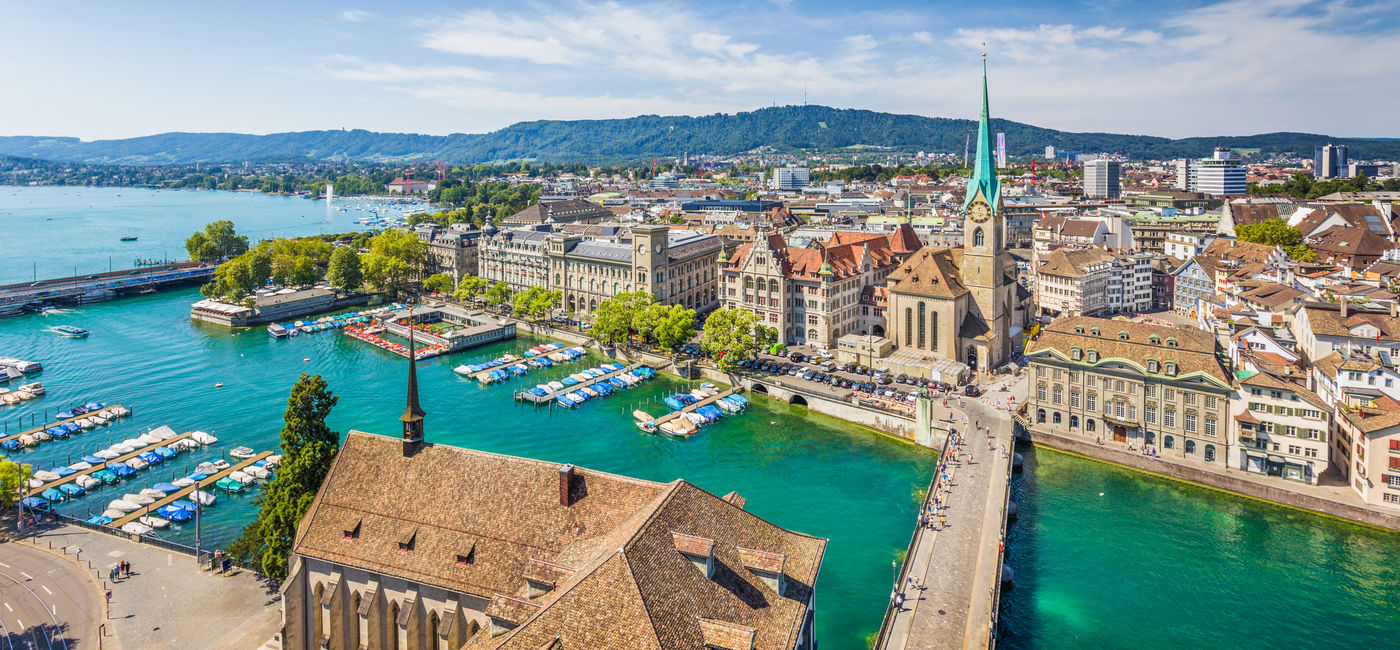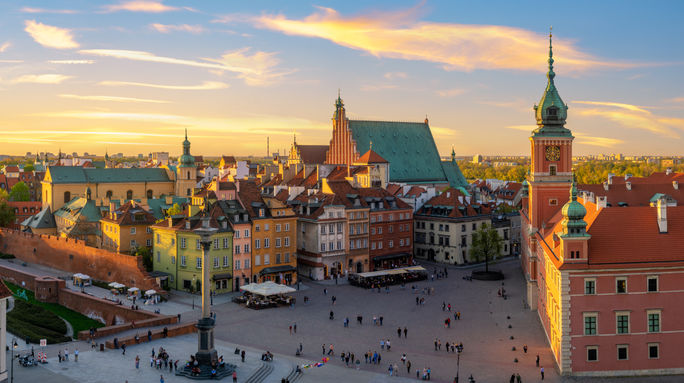WalletHub’s Best Hotel Rewards Programs in 2025
June 7, 2025Lomas Hospitality has something for everyone in Mexico
June 9, 2025
Traveling to Europe feels like a once-in-a-lifetime experience, no matter how many times you’ve been there before; nevertheless, there are some Europe travel dos and don’ts – and the following list includes some of the most important things to be aware of.
Europe travel dos and don’ts – Don’t Be Close Minded on Dates & Arrival City
The first order of business for travelers heading to Europe is securing a flight across the Atlantic. Always keep in mind during this phase of the trip that you can often save a few hundred bucks by expanding the range of cities you are willing to fly into. Then, once on the ground, you can travel to your original city by rail or other local transport.
When deciding on when to travel, if you’re lucky enough to be flexible, then flex your freedom by considering dates outside the main tourist season (May to September) to experience a slightly quieter side of Europe.

Don’t Go Where Everybody Else Does
Whether it’s our first or 15th trip to Europe, it’s always good to head to at least one place a little off the beaten path. And these days with the ongoing issues of overtourism raging on the continent, the last thing you want to do is exclusively visit destinations struggling to keep their head above water. If you’re looking for inspiration? Here are a few ideas, oh, and there’s a few more over here.
about:blank

Do Buy Your Attraction Tickets Ahead
After you’ve landed on the right flights and your destinations, it’s time to start focusing on locking in your “must-dos”, and as a general rule these days: if you can book ahead, then you should book ahead. Yes, if there’s something you want to do and there are advance tickets available, snap them up while you’re sitting at home. The more iconic the attraction(think Sagrada Familia, the Colosseum and the Eiffel Tower) the more necessary it is to book ahead. Trust me, nothing ruins the joy of a day in Europe than spending the day in a long line or finding out that the sight that you had your heart set on is sold out.

Do Wake Up Early
Yes, you’re on vacation, and it is perfectly acceptable to sleep in, but here’s the thing: sometimes the early hours are some of the best to explore a city, especially in summer when temperatures in cities in countries like Spain, Italy and Greece can get downright oppressive. Mornings are cooler, quieter and loaded with special moments most travelers miss. Slip out of the hotel around sunrise for a slow wander through sleepy streets before settling in at a café for breakfast & coffee as the city comes to life. You’ll love it and if you end up being a little tired in the afternoon, then just take a nap, you’re on vacation after all!
Don’t Hit the ‘Convert’ Button
Ah yes, the ol’ ATM conversion trick: don’t fall for it. For the uninitiated, when you’re grabbing cash abroad, the ATM or handheld credit card POS will almost always flash a friendly “Convert to US Dollars” suggestion to you. It might sound convenient, but trust me: always say no. That conversion comes with a lousy conversion rate. Instead, let your home bank handle the currency swap and choose “Local Currency” every single time. You’ll also run into this when paying for things like meals and tickets, basically, any Point of Sale machine you do business with may try to get you to fall for this old trick, but as long as you always stay local you’ll be fine.

Do Find a Festival or Event
Carnival. Oktoberfest. Midsummer. Europe knows how to do folk festivals right and the aforementioned events are just the tip of the iceberg. Timing your trip to coincide with one is certain to provide lifelong memories and a real insight into European culture.
Europe travel dos and don’ts – Don’t Bring Too Much Cash
The first time I went to Europe I made sure I made sure to go to an American bank and stock up on British pounds and Euros. These days, I would just bring about 25 bucks worth. Just like stateside card payments—and Apple Pay and Google Pay—are king across much of Europe now. Sure, it’s smart to land with a little local currency in your pocket, but there’s a decent chance that it will last you the entire trip.

Do Check With Your Phone Company & Banks
As seamless and card-friendly as travel in Europe is these days, you’re still going to want your credit card and bank company to know that you’re heading across the pond. You’ll also want to call your cell phone company and inquire about what your options are regarding international access.

Don’t Spend Too Much Time Online
These days, we’re online seemingly 24/7 but if there’s ever a time to break that habit, it’s in Europe. Trust me, your trip will feel a whole lot richer if you make a habit of slipping the phone into your pocket and just being there. Use it for photos, and hop on WiFi when you need to (it’s everywhere—from cafes to trains), but otherwise, give yourself the gift of disconnection. You’d be surprised how easy it is to burn an hour scrolling in your hotel when you could be strolling cobblestone streets instead. That’s time you won’t get back.
Need to look up a spot for dinner or post that dreamy shot of Santorini? Then why not grab a seat at a local café, order a beverage, tap into the WiFi and soak up the scene while you do your social sharing? It’s a win-win: screen time with a side of authentic local atmosphere.

Do Tip (When You Need To)
I don’t know how, but somehow a myth took hold that nobody in Europe tips. Well, allow me to clear that up—because after nearly a decade of living over here, I can tell you that tipping is very much alive and well. Sure, you’re not expected to drop a full 20%, but leaving something is the norm in many places. A solid 10% at a restaurant is a good rule of thumb and will almost always be appreciated.
That said, tipping customs do vary by country—so it pays to do a little research before you land. One thing to keep an eye on? Service or “cover” charges. Some restaurants will already include it in the bill, and if that’s the case, there’s no need to tip on top of it, even though leaving an extra euro or two is not unheard of if the service has been special.
Do Speak The Language
No, you don’t need to become fluent before your trip or spend 24/7 on a language app, but a simple “hello,” “thank you,” “please” and “excuse me” in the local language goes a long way. It’s not just about being polite, but about showing you’ve made a little bit of effort to care about the country you’re in. A smile, a few words in the local language and some charades is a combo that will get you surprisingly far.

Do Sit and Do Nothing
Sometimes, doing nothing is the best thing you’ll do all day. Seriously. With all the to-do lists and must-eat quests, your time in Europe can be rammed with things to do. Make sure you always stop, smell the roses and just let the world go by for a little while.
Do Pack Your Personality
Love catching a good film? Then why not slip into a local cinema and see what’s playing in Prague? Never miss a Sunday service back home? Step into a centuries-old cathedral in Croatia. Can’t get enough live music? Europe’s got clubs, bars and buskers around every corner. Whatever floats your boat back home, there’s a version of it here and you’ll be guaranteed to get a kick out of experiencing it.

Do Take The Train
Nobody I know ever came home from Europe and said “The bus rides were so romantic!”. On the flip side, rail travel can genuinely be a trip highlight. There’s nothing better than staying out the window watching the landscape go by, and if there’s a dining car on your train, don’t skip it.
Europe travel dos and don’ts – Don’t Sweat the Small Stuff
Things will go wrong. Hopefully nothing major, but there will be snafus so you need to be prepared for that. Typically, these events just serve to be the basis of a funny story later on and end up being a minor delay or inconvenience to your plans.

Do Break in Your Shoes
The odds are good that you are going to do more walking in Europe than you are used to at home, so make sure to practice walking before you head over. A good rule of thumb is to be able to walk 30 minutes to somewhere and back a couple of times a day. So, make sure you break in your shoes before you leave as the last thing you want to do is spend your time in Europe with blisters.
Do Get Familiar With the 24-Hour Clock
Call it “military time” or the 24-hour clock, but get familiar with it because you’re going to see it all over train stations and schedules in Europe. So it behooves you to get used to using it and rest assured, once you get the hang of it, the numbers will easily be associated with their 24-hour counterparts.
This article originally appeared in TravelPulse.
When it comes to Europe travel dos and don’ts, My Journey Begins Travel says “do go to Europe!”
